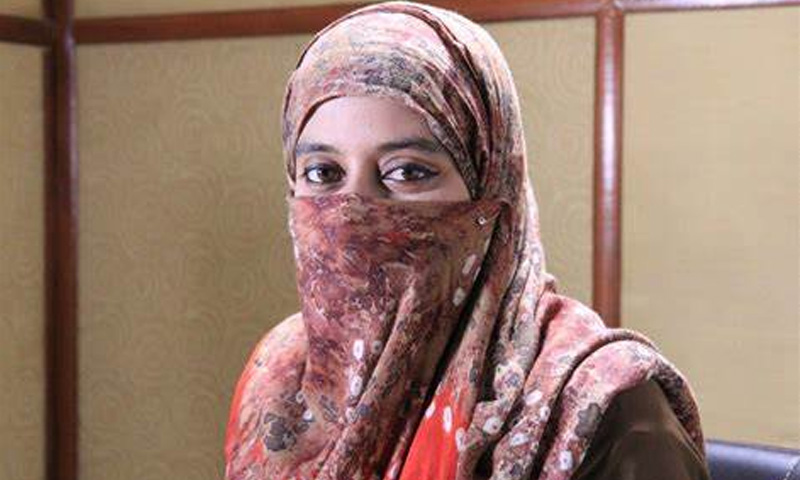- Web Desk
- 1 Hour ago
The tasbeeh of “I was wrong”
Now that the leader of PTI has ample time for introspection in jail, will he realise the many mistakes he has made? Holding oneself accountable has to be one of the most difficult tasks ever. It is much easier for one to hold others accountable for their actions than oneself. And that is why I believe that even if Imran Khan realises his mistakes, he will not admit them openly. Admitting mistakes would mean signalling that one is a common human.
You lose the mental advantage over others who consider you superhuman, incapable of erring. Khan will never admit that he made not just mistakes but blunders, and eventually landed himself in jail.
My colleague Rabia Ahsan, like many others, has had a leaning towards the PTI leader. She too considered Imran Khan as an option, like the educated class of Pakistan, who was, in her view, the solution to all of Pakistan’s problems.
Rabia has been co-hosting a show with me for over two and a half years, but after the decision on the Supreme Court (Practice and Procedure) Act, she expressed her disappointment with him and endorsed my criticism of him. Rabia’s entire family still supports PTI. When I met them, a gentleman said he was surprised that she hosts a show with me.
We often tend to overlook that there is a job for political leaders and there’s a job for us journalists. We have to do our part regardless of who is on the other side. No ruler will be doing good a hundred per cent of the time, and that goes for journalists or anchors too. There are no absolutes.
Anyway, Rabia Ehsan began saying that Imran Khan has made himself a victim of political isolation. He has distanced himself or stepped out from every political forum where he was needed. Had he not left the assembly, perhaps this procedural act wouldn’t have come into being.
On Monday, when the caretaker Prime Minister of Pakistan, Anwar-ul-Haq Kakar, had a meeting with anchors and columnists, he answered a question about being suggested as a PM by Raja Riaz when the two clearly did not know each other. He smilingly said that had Imran Khan not left the assembly, he would have had a big role to play in the nomination (hence no need for Raja Riaz). He cleverly deflected the question by asking the journalist why the PTI chairman vacated the seat for Raja Riaz?
That is exactly what old supporters like Rabia are also saying – “Khan Sahib was found absent wherever he was needed.”
The matter isn’t just limited to the procedural act or the caretaker Prime Minister’s name. The PTI chairman always believed that there can be no government or the existence of an assembly if he is no longer a PM. He thought the same about the Punjab and Khyber Pakhtunkhwa assemblies. His party worked to great lengths to form governments in the centre, Punjab, Khyber Pakhtunkhwa, Gilgit-Baltistan, and Azad Jammu and Kashmir, with divine help, but more effort was put into destroying all of it even faster.
With party leadership becoming fugitives, cases filed against sisters and wives, hardships endured by workers and their families, he should only be repeating one thing on his tasbeeh in Adiala; “I have been wrong”.
Just as he benefited from Nawaz Sharif’s mistakes, Nawaz Sharif will now take advantage of his mistakes. Khan used to be at his happiest when problems would arise between Nawaz and Raheel Sharif first and later, between him and General Bajwa. But Nawaz now faces the same situation that Benazir Bhutto once faced.
Everyone advised her not to come to Pakistan citing threats to her life. But she came back. People close to her say that she was fully aware of the threats, but she also knew that if she did not return, not only would winning an election be impossible for PPP, but perhaps the very party would perish for good. Benazir’s main aim became transferring the party to Bilawal, and winning the 2008 election. Which was crucial to achieve that. PPP did win, and the party is now led by Bilawal, but an iconic political figure had to perish for it.
Similarly, Nawaz Sharif could not wait outside for another five years. He could not have found a more conducive environment than when his biggest opponent is in jail, his popular party in tatters, and horrific enmity is raging between him and the establishment. Nawaz also enjoys the backing of a few powerful countries.
He is at an age where this might become his last stint in a high office and, just like Benazir took all risks to transfer her political legacy to Bilawal, Nawaz now bears the burden of shifting his legacy to Maryam. He might arguably have a better atmosphere to do it.
Now if you ask whether the Nawaz of 2024 will be different in any way from the Nawaz of 2013? You might have to answer this question first: Was the Nawaz of 2013 different from the Nawaz of 1999?
But an even more glaring question that arises is: whose shortsightedness gave the PMLN leader the grounds to raise his party from the ashes again?






